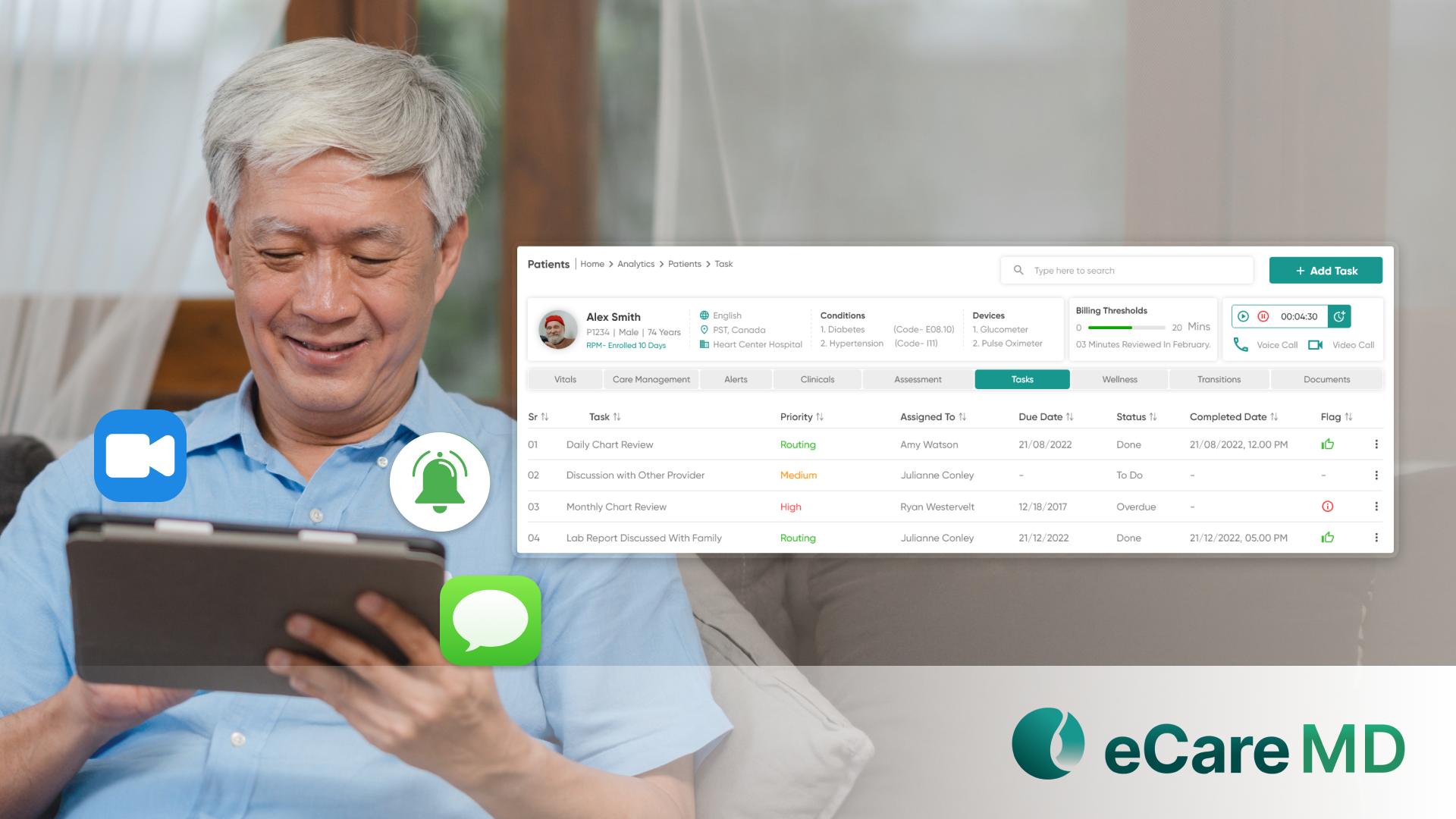Client Overview:
The client is an independent primary care practice in Arizona with four physicians serving 2100 patients, primarily Medicare beneficiaries with diabetes, hypertension, and chronic kidney disease. After launching their PCM program in early 2023, the practice faced significant business challenges and documentation issues that were slowing business expansion. The practice is spending more on the PCM program than they are receiving PCM reimbursement, with a monthly loss of 12000$ due to claim denial and administrative burden.
Business Challenges:
The practice faces several Business challenges that were slowing their PCM reimbursement and expansion as follows;
1. High PCM Claim Denial Rates Due to Documentation Error:
The practice faced a 38% denial rate ON PCM claims, mostly because of unstructured documentation of PCM billing services, such as 30 minutes of non-face-to-face care per patient each month. The service time was tracked manually on paper, which was also incomplete, difficult to read, and unstructured. As a result, the audit fails these reports while the claim submission in PCM services in areas such as care plan creation, medication management, and coordinating other care team members. This documentation error leads to approximately. 8000$ revenue loss each month.
2. Inefficient Resource Allocation and Patient Management:
While one care team member serves 120 patients, the practice struggles with managing patients effectively. Lacking a structured system to prioritize high-risk patients, the care manager spends equal time on both stable and complex patients. This resulted in missed opportunities for timely interactions with patients who need the most support, while low-risk patients consume most time, in such a process, the care team spends extra work hours, leading to mismanagement in the workspace.
3. Lack of Systematic Patient Communication and Engagement Tracking:
The patient communication workflow was poorly handled, and the interactions, such as phone calls, emails, and interaction notes, were unstructured. This outdated process made it difficult to track monthly interactions for the care providers, which is essential for PCM Billing, resulting in failed outreach responses from patients. Without a structured communication workflow, PCM patients had no documented contact in the respective month of billing, and their service went non-billed, resulting in revenue loss.

4. Absence of Measurable Care Plan Outcomes and Progress Documentation:
While creating a care plan for a PCM patient, timely updates, such as patient progress, medication adherence, and goal achievement, went missing. The providers had no structured system to track patient outcomes. This gap is reflected when justifying services and taking future actions for patients.
Solution Provided:
While facing potential program setbacks in workflow, the client reached out to Medarch Inc. to implement the eCareMD care coordination software. After understanding the potential gap in the client's business, eCareMD was implemented to streamline documentation and create a centralized communication system to improve care coordination.
Solution highlighted:
1. Automated Time Tracking and Billing-Compliant Documentation:
eCareMD automatically records all PCM activities such as phone calls, care plan updates, medication reviews, and coordination with other providers, with accurate time tags and notes. Each activity is logged with patient-specific information and the provider's action, ensuring clear documentation for billable codes like 30 minutes for non-face-to-face care per month. The system generates structured, Medicare-compliant reports for reducing claim denials and decreasing manual time tracking.
2. Risk-Based Patient Prioritization and Care Manager Dashboard:
eCareMD has provided a provider-oriented dashboard that automatically displays critical patients with their high alerts and related due tasks. High-risk patients are flagged for timely follow-ups. The system provides daily task lists, reminders, and real-time productivity tracking to help care managers prioritize tasks and work more efficiently.

3. Structured Patient Communication Workflow and Engagement Tracking:
eCareMD offers a streamlined communication system that includes secure messaging, automated reminders, and smooth phone call workflows. These activities are automatically recorded with a time stamp and notes, which creates clear records for ongoing care. The platform also tracks patient engagement levels and flags patients regarding their activities, helping provider staff reach out to specific patients. This ensures consistent monthly contact, which supports PCM billing requirements.
4. Dynamic Care Plan Management with Progress Tracking:
eCareMD offers advanced care plan tools that monitor patients' goals, medication adherence, vital signs, and clinical outcomes. The care manager can update the care plan for the patient's goal, medications, and interventions, which are system tags with provider name, date, and time as the patient makes progress. The platform generates clear data-driven reports that show the value of care being delivered, helping practices to justify PCm billing.
Value Added:
1. Reduced PCM Claim Denials from 38% to 6% Within 4 Months:
By automated documentation and accurate time tracking for non-face-to-face services, the ecareMD provides standardized reports for claim submission within medicare compliance, which were consistently approved. As a result, the practice reduced denials from 38% to 6% monthly from PCM services.
2. Improved Care Manager Efficiency and Patient Capacity:
With eCareMD's risk-based prioritization system, the care manager was able to manage 240 PCM patients efficiently within work hours, reducing the need for overtime. Patients receive timely interventions, leading to higher satisfaction and improved outcomes.
3. Achieved 92% Monthly Patient Contact Rate for PCM Billing:
Using structured communication workflows and automated engagement tracking, the practice achieved consistent contact with PCM patients. Patient response rate grows from 60% to 92% by multiple communication channels and automated follow-up reminders. As a result, the practice reached full compliance with monthly engagement, ensuring PCM billing requirements.
4. Demonstrated Clinical Value Through Measurable Outcomes:
With eCareMD's care plan management system, the practice was clearly able to track and report patient progress. These measurable improvements helped the care team to justify PCM care services while making billing submissions. As a result, the practice achieved a 94% patient retention rate and received positive feedback.

